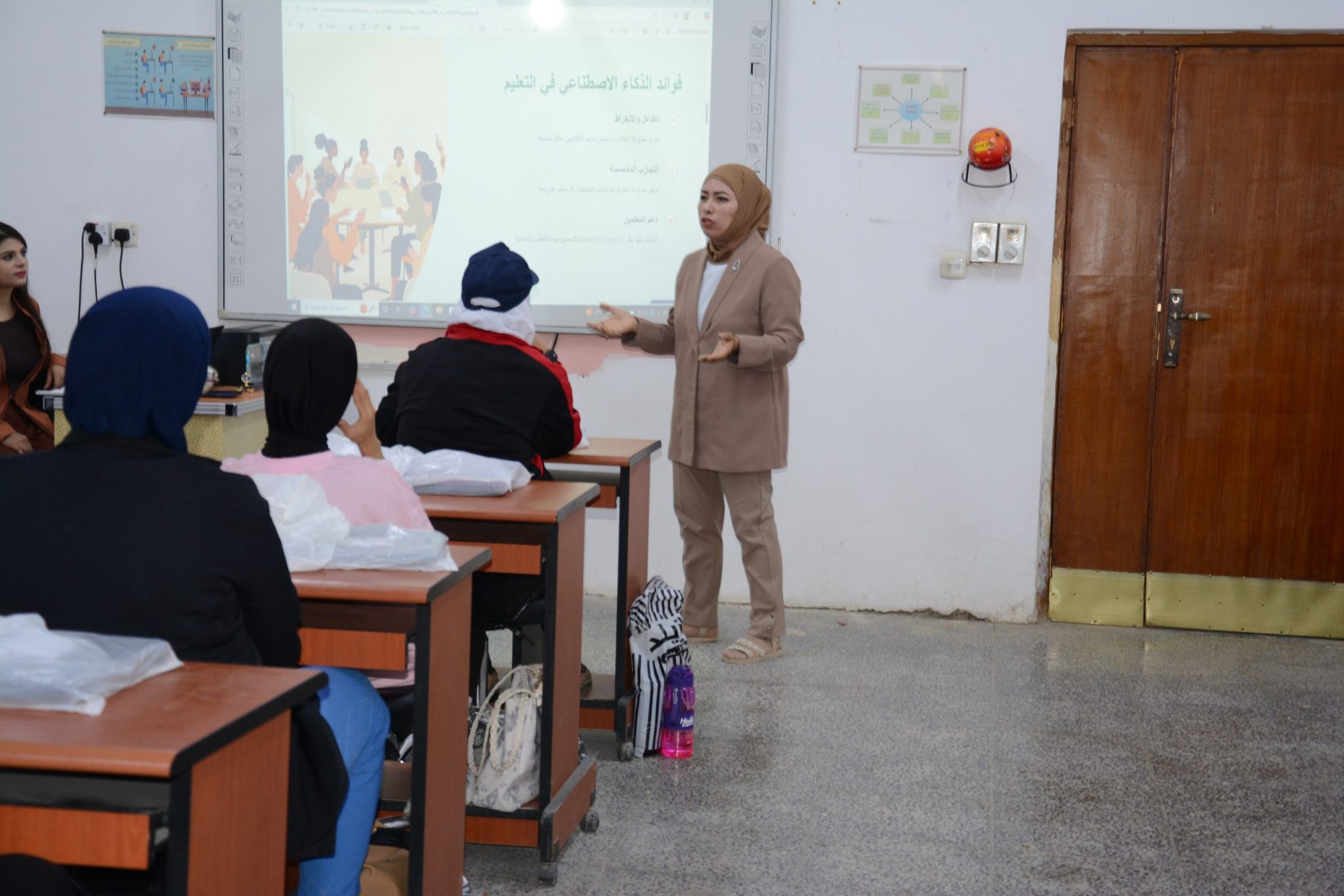The Rehabilitation and Employment Unit at the College of Physical Education and Sports Sciences for Women – University of Baghdad organized a scientific workshop titled (E-Learning in Light of Artificial Intelligence), presented by Asst. Lecturer Liqaa Mohammed Shouhi and Asst. Lecturer Rasha Majid Hassoun.
The workshop aimed to introduce the concept of artificial intelligence (AI) and its role in the field of education. AI was defined as the use of intelligent systems to analyze learning data and personalize educational experiences, thereby enhancing students’ understanding, improving teaching efficiency, and facilitating evaluation.
The presenters explained that AI contributes to better comprehension, personalized learning experiences, enhanced teaching performance through advanced innovative tools, and continuous and instant assessment of student performance.
They also highlighted the benefits of AI in education, including increased interaction and engagement, personalized learning experiences tailored to each student’s pace and preferred style, deeper understanding, and improved knowledge retention. In addition, AI empowers teachers by providing intelligent dashboards that offer detailed analytical data on student performance, enabling informed educational decisions and continuous improvement of teaching practices.
In conclusion, the speakers emphasized that AI-powered learning is not a substitute for teachers, but rather a strategic partner that strengthens and enriches the educational process.
This workshop supports one of the United Nations Sustainable Development Goals (SDGs) — Goal 4 (Quality Education).
